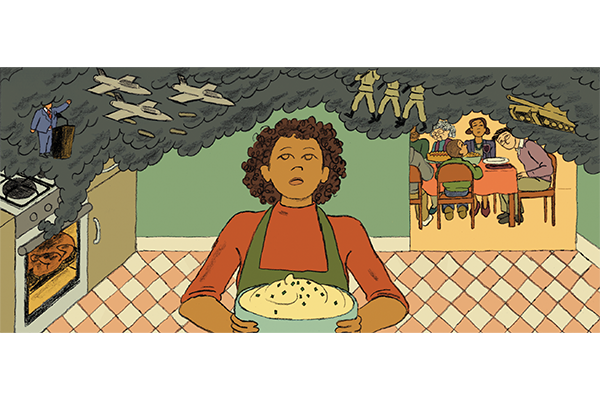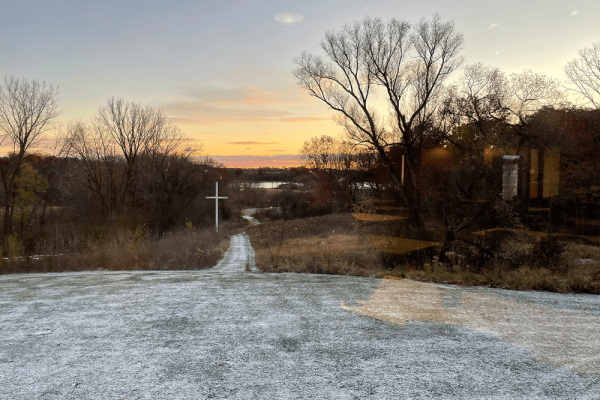WE HEAR A lot about gratitude as both spiritual practice and a boost to our mental health. But I confess: Lately I’ve caught myself asking what, exactly, is there to be so thankful for?
In the U.S., Thanksgiving is upon us. We are expected to be thankful and celebratory. In the face of so many national and global crises, however, feeling gratitude can be challenging. Authoritarianism and political violence are rising in the United States. Preventable suffering and death around the world are surging due to ongoing war in Ukraine, the Middle East, Sudan, and beyond and the Trump administration’s dismantling of foreign assistance programs for health and food security.
Of course it is not just big systemic problems that trouble our spirits and suffocate our ability to feel gratitude. We’ve all felt the bitterness of an unexpected cancer diagnosis in the family, the sudden loss of a job or a parent, or other adversity. The phrase “Why do bad things happen to good people?” is well-worn for a reason.
And then there’s the Thanksgiving holiday itself, with its largely mythical origins and a commonly told backstory that sanitizes the early relationship between European settlers and Native Americans. The settlement of the Americas by Europeans cannot be separated from the mistreatment and ultimately the genocide of Native Americans.
Despite all that can overshadow this holiday, I believe we still need to cultivate gratitude as both a disposition and a communal practice. Holidays are a valuable opportunity to be with others and to name and celebrate all that we can be grateful for, whether that is good health, a job that pays the bills, loving relationships with family and friends, a roof over our heads, food on our tables, or simply breath that fills our lungs—knowing that any of these could be taken at any time. Gratitude is a muscle that especially needs to be strengthened in times of duress.
The phrase “Why do bad things happen to good people?” is well-worn for a reason.
In the context of faith, thanksgiving begins with God’s love, character, and promises. Paul reminds us to “Give thanks in all circumstances” (1 Thessalonians 5:18), signaling that it is part and parcel of discipleship. Jesus gave thanks to God and broke bread with his disciples even in the face of imminent death. In fact, the word eucharist comes from the Greek word eucharistia, meaning thanksgiving. These scriptures remind us that thanksgiving is both personal and communal in nature—and wells up from God’s presence in all times and situations.
As for the larger troubles of the world and the threats to our democracy in the United States, Thanksgiving presents a choice. I can accept things as they are or give thanks to a God who has the power to “make all things new” (Revelation 21:5) in and through us. I choose to be grateful for a God who loves each of us profoundly and unconditionally, and who has revealed to us God’s preferred and promised reign of justice, righteousness, and love. Our gratitude can remind us that a better world is possible, and that each of us gets to work alongside God to help bring that world into being. That’s an incredible, life-changing opportunity.
I pray that this year, wherever or however you observe Thanksgiving and Christmas, that we are all able to affirm once again God’s promise of liberation and flourishing.

Got something to say about what you're reading? We value your feedback!






